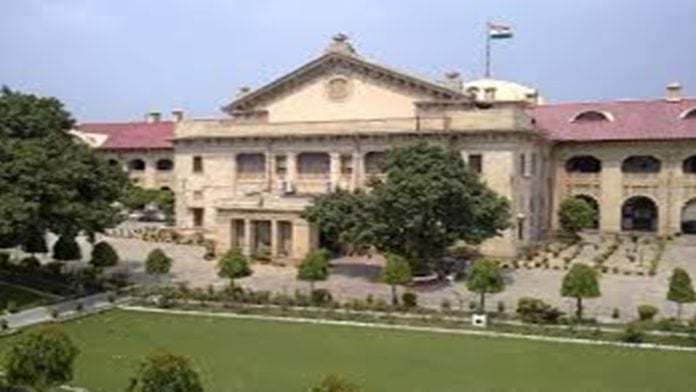The Allahabad High Court while dismissing an application said India’s national flag, symbolises the unity and diversity of the nation, transcending religious ethic and cultural differences. Act of disrespect towards the tricolour can have far-reaching social cultural implications, particularly in a diverse society like India.
A Single Bench of Justice Vinod Diwakar passed this order while hearing an application under Section 482 filed by Gulamuddin and 6 other.
The application u/s 482 CrPC has been filed with the prayer to quash the entire proceeding arising out of charge-sheet dated 04.10.2023 and cognizance order dated 14.05.2024, passed in Criminal Case under Section 2 of Prevention of Insults of National Honour Act, 1971, registered at PS Jalaun, District Jalaun.
Counsel for the applicants submitted that; (i) the entire criminal proceedings lodged by the informant is only colourable exercise against the applicants; (ii) investigation do not suggest whether the flag mentioned in the FIR is a Tiranga or any other flag, having three colours; (iii) police have not brought any evidence on record to suggest that there was any mischief caused to the national flag as specified in Section 2 and 3 of Prevention of Insults of National Honour Act, 1971; (iv) the statement of Eshanullah and Ramdas has been extracted by police under the coercion and duress; (v) the statement of constable Khursheed, recorded under Section 161 Cr.P.C cannot be relied upon; (vi) FIR is registered by S.I. Anil Kumar Rana on the basis of the engineered facts, therefore, cannot be relied upon; (vii) on reading of the FIR it cannot be safely revealed the alleged tricolour was actually a national flag or not; (viii) the national flag was subsequently planted by the police after registration of the FIR; (ix) the applicants were falsely implicated in the instant case during investigation because of reasons known to the police.
Per-contra, the AGA has opposed the application and argued that FIR was registered against unknown persons. The applicants name figured in the statement of constable Khursheed Alam, Eshanullah and Ramdas-the police witnesses.
The Court observed that,
In the matter, the submissions raised by counsel for the applicants call for determination on questions of fact which may be adequately adjudicated upon only by the trial court. Adjudication of questions of facts and appreciation of evidence or examining the reliability and credibility of the version, does not fall within the arena of jurisdiction under Section 482 CrPC. In view of the material on record it can also not be held that the impugned criminal proceeding are manifestly attended with mala fide and maliciously instituted with an ulterior motive for wreaking vengeance on the accused and with a view to spite him due to private and personal grudge. Similarly no such illegality, perversity or any other substantial error could be pointed out in the impugned summoning order, so as to warrant any interference by this court in exercise of powers u/s 482 CrPC.
On perusal of record and on examination of statement of witness, Tajuddin, Ramdas, constable Khursheed Alam and Eshanullah recorded by the police under Section 161 CrPC, it’s revealed that the applicants took part in the religious procession and were carrying the tricolour in their hands, on which Quranic verses (ayat and kalma) were inscribed adding insults to the national flag.
The Court finds force in the argument of AGA and prima-facie finds that the act of applicants is punishable under Flag Code of India, 2002 and there is violation of Section 2 of Prevention of Insults of National Honour Act, 1971 by the applicants.
“The Tiranga, India’s National Flag, symbolizes the unity and diversity of the nation, transcending religious ethic and cultural differences. It is a unifying emblem representing the collective identity and sovereignty of India. Act of disrespect towards the Tiranga can have far-reaching social cultural implications, particularly in a diverse society like India. Such incidents can be exploited by the elements seeking to create communal discord or fuel misunderstandings between different communities. It is crucial to recognize that the actions of a few individuals should not be used to stigmatize an entire community,” the Court said while dismissing the application.


